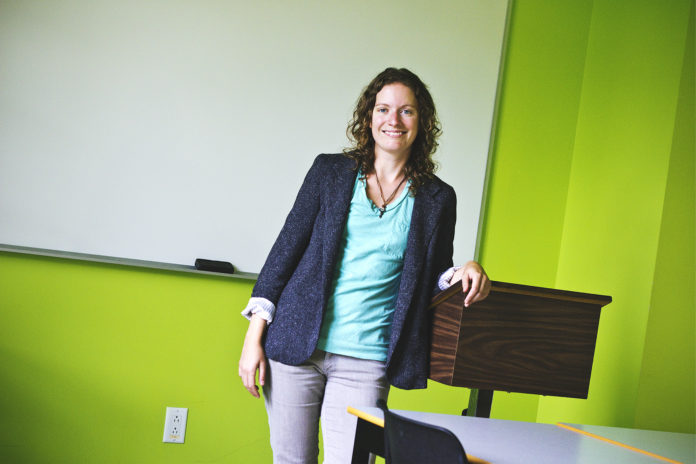

Erin Fredericks, a St. Thomas University sociology professor, is coordinating a program to connect queer youth of New Brunswick with older members of the community and give them the opportunity to learn from them, especially during these times of isolation.
The project will pair elderly members of the queer community with younger members to share experiences and what they had to fight for, showing the generational gaps and encouraging respect.
“The folks who would be the older members of this study, they did so much activism to make it possible for young people today to create new ideas about gender and sexuality,” said Fredericks.
“We wanted to come up with a creative way of using community knowledge and wisdom to support their health.”
Fredericks proposed the project in the fall and said that the 2SLGBTQIA+ community is deeply affected by COVID-19 restrictions because most of the support that people access is outside of their homes. It prevents people who haven’t come out yet from having a safe support system.
The project is important to Fredericks because the youth who will take part in the project are from her community. She hopes the research that comes out of it will be able to make a positive change.
Different workshops and research will take place during the spring and summer. The program will go for its first trial run in local schools in the fall and after revision, it will be officially launched for the public in December of this year.
“We need to see queerness as a source of knowledge and wisdom,” said Fredericks.
Aaron Beaumont, a fourth-year STU student, is working alongside Fredericks on this project.
“I think that this study is so important, and I’m really honoured to be working as a part of the research team,” said Beaumont. “As a queer and trans person myself, I can only imagine the impact that the results of this study would’ve had on me as a younger queer person,” they said.
Beaumont has experience as a research assistant and is now the head of the project’s research team who is working directly with the community.
“This study reminds me [of] the importance of community care and it shows me that we can show up for our community and we know best what the community needs,” said Beaumont.
Fredericks said that N.B. needs better youth mental health services and that they need to be created in ways that are accessible and appropriate for 2SLGBTQIA+ youth. Though some programs have been implemented in schools, like the Gay-Straight Alliance, there is still more to be made for the curriculum to be fully inclusive.
“Mental health and education are the biggest two things that need to be changed, or need to keep changing,” said Fredericks.
Fredericks and her team, which is made up of members of the 2SLGBTQ+ community, are partnering up with different organizations such as Partners for Youth, AIDS New Brunswick, Imprint Youth Association and the Canadian Mental Health Association in Fredericton for this project.
“The way queer people care for each other is unique and valuable. And that as queer people one day, they will be elders, and they’ll have a lot to offer the next generation.“
The project also aims to be an accessible support group for queer youth and help alleviate overwhelming feelings and stress that come from governmental mental health services by learning from the elders that had gone through similar things, said Beaumont.
“I rely a lot on my community and this handful of queer and trans people that I’m really close to, but in terms of maneuvering through governmental services, it’s a long, tedious, complicated process and it’s expensive and it’s just unnecessary. It’s very frustrating,” said Beaumont.
Beaumont said they think the project will bring change to areas of N.B where services can be limited.
“I hope that queer youth learn that the future is possible. I think it will provide a sense of hope and resiliency to show queer youth that they can get through it, that they can have a future” said Beaumont.
